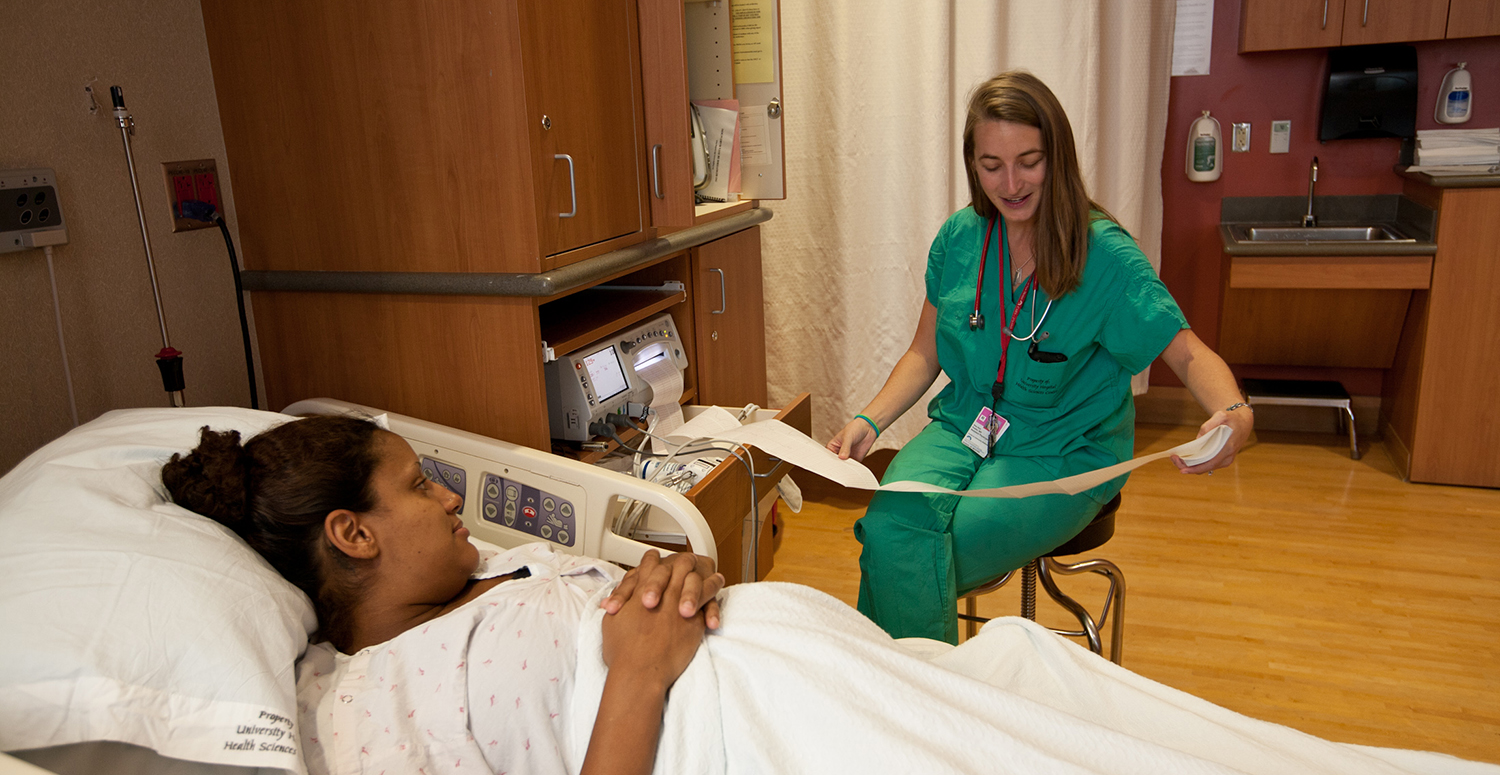Having high blood pressure during pregnancy can hurt you and your baby. This condition is known as preeclampsia.
Preeclampsia occurs when you have high blood pressure and often protein in your urine during pregnancy. About 1 in 25 pregnancies in the U.S. are affected by preeclampsia, which can happen without warning.
Symptoms can be tough to notice on your own. Left untreated, it can lead to serious, even deadly, complications, including:
- Premature birth
- Damage to your liver, kidneys, heart or eyes
- Seizures
- Pregnancy loss
Checking for preeclampsia is a good reason to go to your prenatal care appointments—health care during pregnancy. In these visits, your Ob/Gyn or midwife will check your blood pressure and urine. These tests can help us find a blood pressure problem before it becomes serious.
Let’s discuss who is at risk and what symptoms to look for during pregnancy.
Who is at risk?
Any pregnant patient can develop preeclampsia. It can happen at any time during pregnancy, but it most often affects women in the third trimester. Some factors increase the risk, including:
- Age younger than 20 or older than 35
- Obesity
- Having twins, triplets, or other multiples
- High blood pressure before pregnancy
- History of preeclampsia: Yourself or your mother, sister or aunt
Patients with certain medical conditions, such as diabetes, kidney disease, blood clot disorders and lupus, are more likely to develop preeclampsia.
Racial inequities contribute to harm and death from preeclampsia for Native American and African American women. The Pre-eclampsia Foundation’s National Racial Disparity task force is working to reduce these health inequities.
Checking for preeclampsia is a good reason to go to your prenatal care appointments—health care during pregnancy. In these visits, your Ob/Gyn or midwife will check your blood pressure and urine. These tests can help us find a blood pressure problem before it becomes serious.
What are the symptoms?
Preeclampsia often shows no symptoms except a high blood pressure reading or excess protein in your urine. When symptoms do happen, they may be easy to ignore since they are similar to other pregnancy symptoms. But it’s always better to be safe than sorry!
Call your doctor if you have any of these symptoms during pregnancy:
- Blurry vision or seeing spots
- Headache that won’t go away
- Nausea or vomiting
- Pain in the upper stomach that feels like heartburn
- Swelling of the hands, feet, or face
- Sudden weight gain
- Trouble breathing
Can preeclampsia be prevented?
Unfortunately, there is no known way to prevent preeclampsia for most patients. The best thing you can do is control your risk factors and keep your prenatal care appointments to monitor your blood pressure.
If you have high blood pressure or obesity before pregnancy, your doctor or midwife can help you make a plan to manage your health during pregnancy. Getting exercise, sleeping well and eating a healthy diet can go a long way to improving your health.
The American College of Obstetrics and Gynecologists (ACOG) recommends that patients at high risk for preeclampsia take a low-dose aspirin (80 to 150 mg) every day starting at about 12 weeks of pregnancy. Talk to your doctor or midwife about the benefits of aspirin in pregnancy if you are at risk.
What are the treatments?
The best way to treat preeclampsia is to give birth. Depending on how bad your condition is and how far along your pregnancy is, medication may help. Some medications can lower blood pressure and reduce seizure risk to delay delivery.
We may recommend that you stay in the hospital so we can monitor you and your baby closely. Our goal is to keep you and your baby as safe and healthy as possible.
What happens after giving birth?
Preeclampsia symptoms should go away soon after your baby is born. In rare cases, high blood pressure can develop after giving birth. This is called postpartum preeclampsia, and it can happen up to six weeks after delivery.
Don’t skip postpartum care. Call your doctor or midwife—or call 911—if you have preeclampsia symptoms after giving birth.
If you have preeclampsia, your providers will partner with you to ensure follow-up care as you may have higher risk for health problems in the future such as:
- High blood pressure
- Heart attack
- Stroke
- Heart failure
Ask your doctor or midwife how often you should check your blood pressure and cholesterol after giving birth. We recommend that patients who have had preeclampsia avoid smoking, using drugs and drinking too much alcohol.
Tell your future health care providers that you had preeclampsia. They can help you get the care you need to stay healthy.
Preeclampsia is a serious pregnancy complication. Please go to your prenatal care appointments and get help quickly if you notice symptoms. Your doctor or midwife are here to help protect you and your baby’s health.

